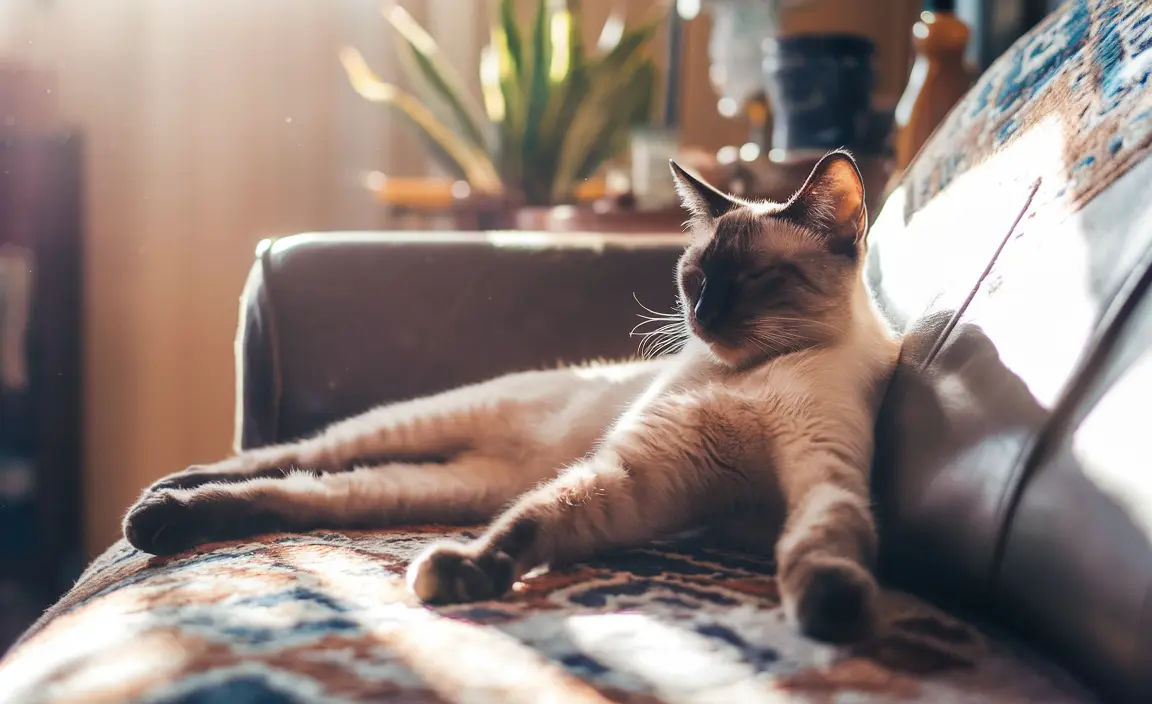If your beloved cat is experiencing hair loss and persistent scratching, you're not alone. Many pet owners face this concerning issue that can stem from various underlying causes. Understanding the reasons behind your cat's hair loss is crucial for providing the right care and ensuring your feline companion's health and comfort.
In this comprehensive guide, we'll explore the most common reasons for cat hair loss, helping you identify potential triggers and understand when it's time to seek professional veterinary help.
Common Causes of Cat Hair Loss
Allergies: A Major Culprit
Allergies are one of the most frequent causes of hair loss in cats. These can manifest from multiple sources, including:
- Food sensitivities
- Environmental allergens like pollen or dust
- Contact with irritating substances
- Flea saliva reactions
Cats with allergies often experience intense itching, leading to excessive grooming and subsequent hair loss. The reaction might cause symmetrical bald spots or overall fur thinning, typically accompanied by red, inflamed skin.
Parasitic Invasions
Tiny unwelcome guests can wreak havoc on your cat's coat. Parasites such as fleas, mites, and lice are notorious for causing severe itching and hair loss. Even if you can't see these microscopic invaders, they can cause significant discomfort.
Fungal and Bacterial Infections
Ringworm and other fungal infections are common culprits behind patchy hair loss. These conditions not only cause fur to fall out but can also create circular, scaly patches on your cat's skin. Bacterial infections can develop secondary to constant scratching, further complicating the issue.
Recognizing Warning Signs
Symptoms to Monitor
Identifying early warning signs can help you address your cat's hair loss more effectively. Watch for these key indicators:
- Bald spots or thinning fur
- Redness and skin irritation
- Persistent scratching or licking
- Visible scabs or sores
- Changes in skin texture
Psychological Factors and Stress
Cats, especially those with nervous temperaments, can develop psychogenic alopecia. This condition occurs when stress or anxiety leads to compulsive over-grooming. Purebred cats are particularly prone to this behavior.
Managing Stress-Related Hair Loss
- Provide a calm environment
- Use interactive toys
- Create consistent routines
- Consider pheromone diffusers
- Consult a veterinarian about potential anxiety medications
When to Seek Veterinary Care
While some hair loss might seem minor, certain situations demand immediate professional attention:
- Large areas of fur loss
- Signs of skin infection
- Accompanying weight loss or lethargy
- Persistent symptoms despite home care
Treatment and Prevention
A veterinarian will typically conduct comprehensive tests, including:
- Skin scrapings
- Fungal cultures
- Allergy testing
- Parasite screenings
Treatment may involve:
- Flea prevention medications
- Antifungal treatments
- Dietary modifications
- Stress management strategies
- Addressing underlying medical conditions
Frequently Asked Questions
Why is my cat losing hair in patches and scratching constantly?
Patch hair loss with constant scratching often indicates allergies, parasites, or skin infections. A veterinary examination can help pinpoint the exact cause.
Can stress or anxiety cause excessive grooming and hair loss in cats?
Yes, psychological stress can lead to compulsive grooming known as psychogenic alopecia, resulting in significant hair loss.
What parasites or infections lead to bald spots on cats?
Fleas, mites, lice, and fungal infections like ringworm can cause bald spots and intense itching.
How do I know if my cat's hair loss is due to allergies or a medical condition?
Professional veterinary diagnosis through testing is the most reliable method to distinguish between allergies and other medical conditions.
When should I take my cat to the vet for hair loss and itching?
Seek veterinary care if hair loss is extensive, persistent, accompanied by skin changes, or if your cat shows signs of discomfort or systemic illness.






